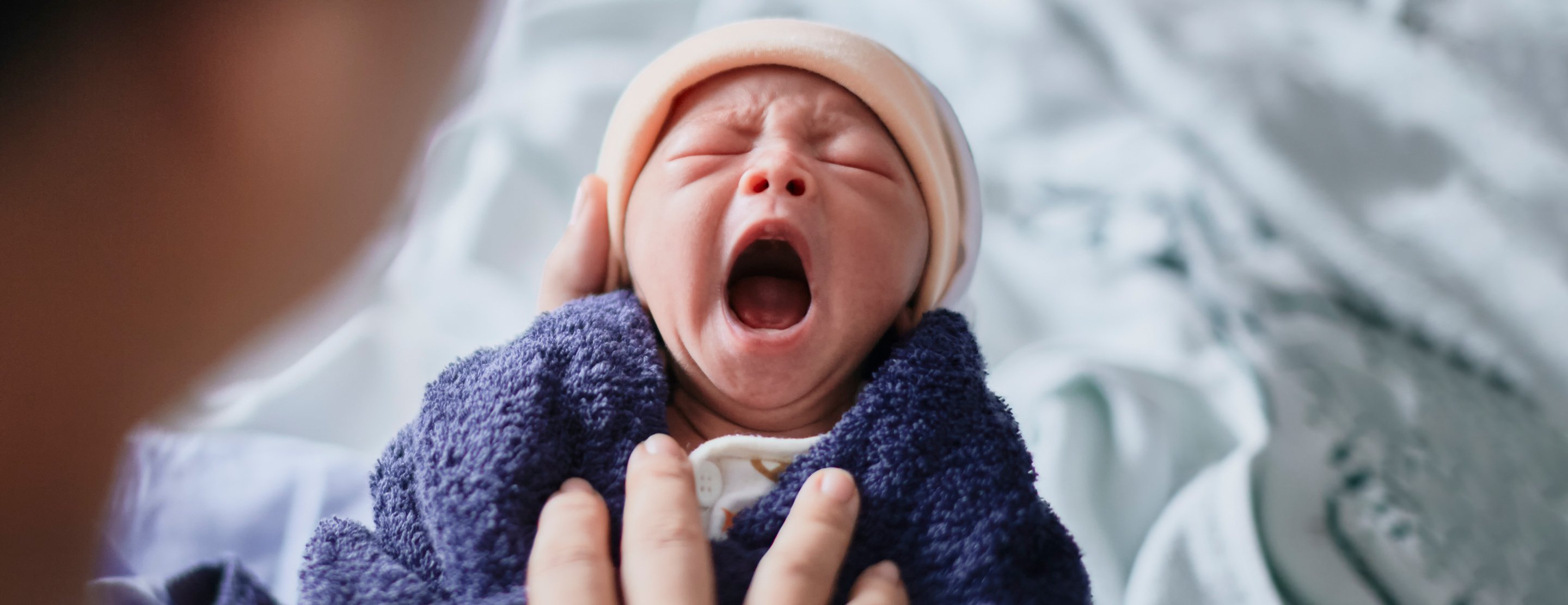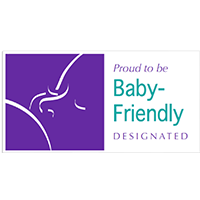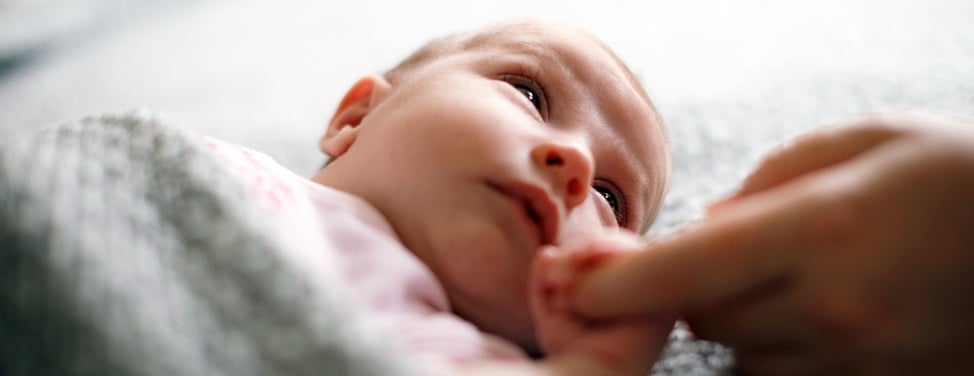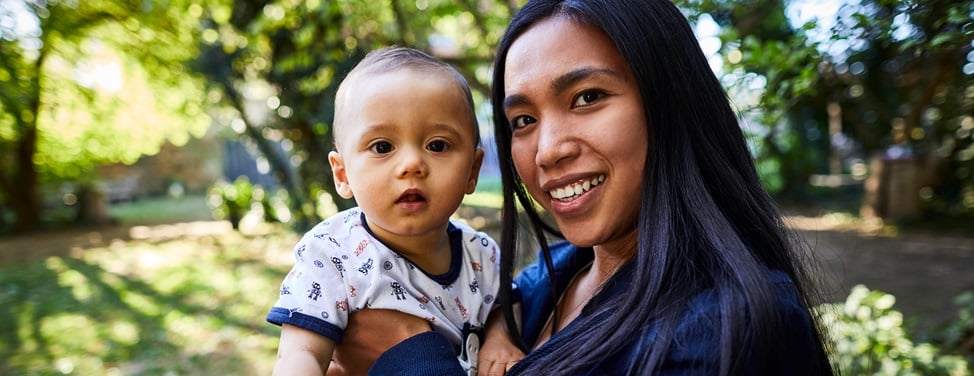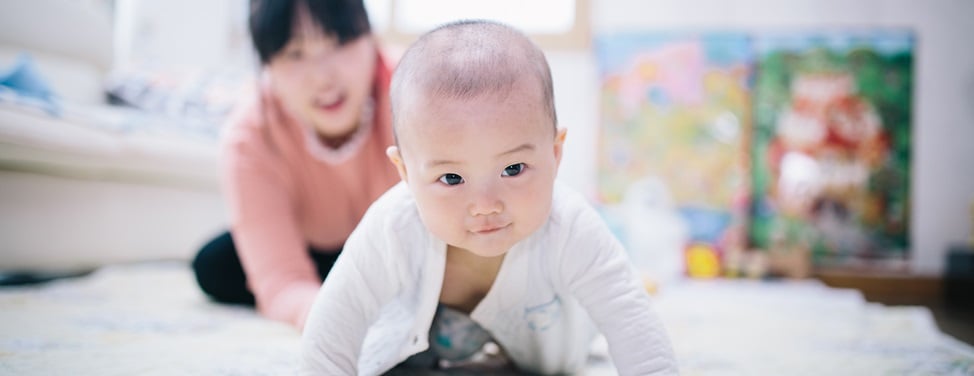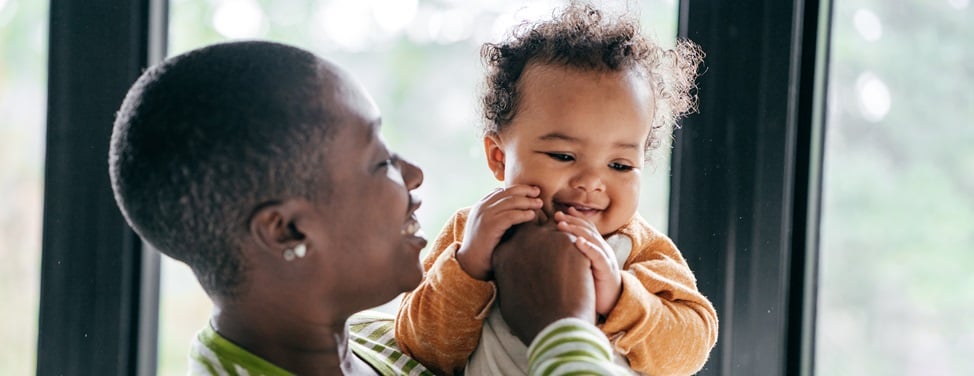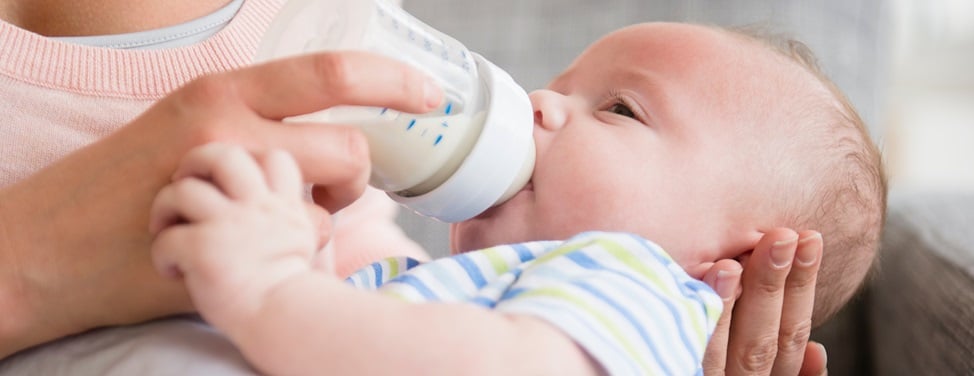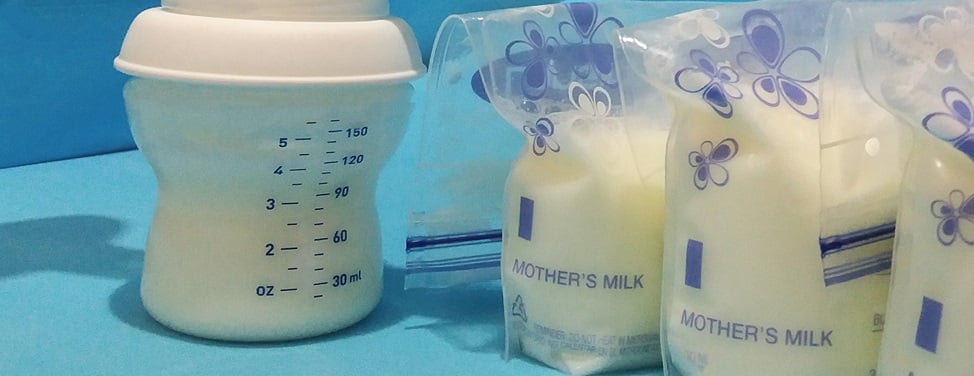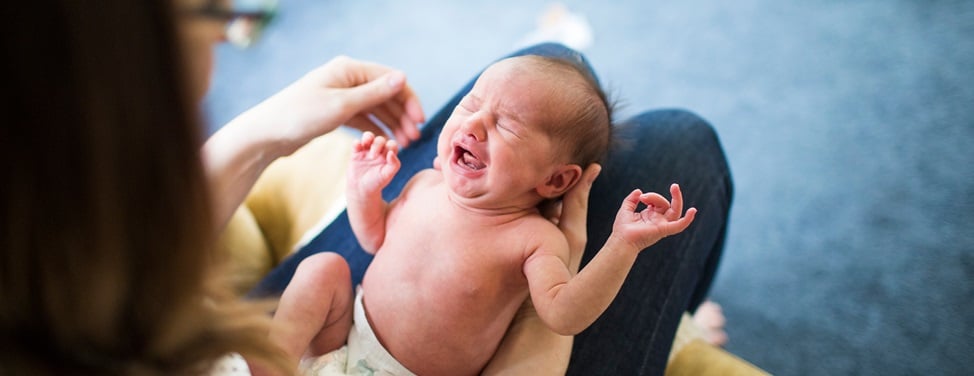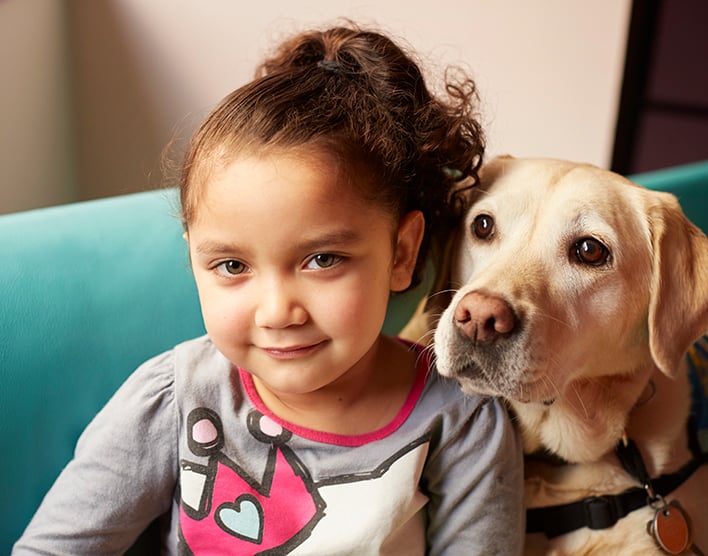Parenting
Every baby has a unique personality. You will gradually learn your baby's temperament and will know your child better than anyone else. Babies this age need to be held and cuddled — it helps them feel safe. You cannot spoil babies during the first four to six months by holding them too much. They also enjoy seeing parents' faces and hearing their voices, so talk and sing to your baby.
Never shake your baby. Shaking or spanking a baby can cause serious injury or death. Every parent feels overwhelmed and anxious at some time. If you are a new mother and are feeling depressed, anxious, tired or are crying a lot, you may have post-partum blues or depression. Please check with your doctor for help. You can reach the UCSF Post-Partum Clinic at (415) 353-2566.
As a parent, you have new responsibilities. Although you may not want to think about it, you should have a will so that in the unlikely event of your death, you will determine who will care for your child, rather than the state.
Crying
Babies cry one to four hours a day. Sometimes they cry because they are hungry, tired, have a dirty diaper or just want to be held. Sometimes babies cry for no known reason. Many babies cry more in the early evening — just when you're trying to have dinner. Babies cry the most between the ages of 6 to 8 weeks.
For more information on crying, please see Soothing Your Crying Infant.
Feeding
Breast-Feeding
- Breast-feed your infant whenever he or she appears to be hungry. Most infants nurse every two to three hours.
- Breast-fed infants usually have a bowel movement soon after every feeding.
- Breast-feeding mothers should continue taking their prenatal vitamins until the infant is weaned.
- Breast-fed infants get their fluoride through their mother's milk, therefore you should drink some fluoridated water daily. Brita and Pur filters do not remove all the fluoride.
- If you choose to express breast milk, wait until your infant is 3 weeks old to do so.
- You can express milk at any time — before, during, after or in-between a feeding.
- You will need to be warm, comfortable and relaxed.
- Stimulate your nipples to simulate nursing and promote the let-down of milk.
- You can store milk in the freezer for four to six months in plastic or glass containers.
If your baby is exclusively breast-fed, give him or her 400 units of vitamin D daily. Vitamin D comes as a liquid and is available over the counter without a prescription. Whatever brand you buy, check the directions to make sure your baby is receiving 400 units of vitamin D each day.
Formula-Feeding
- Concentrated and powdered cans of formula are cheaper, but please read the directions carefully when preparing it.
- Do not force your baby to finish all the formula in the bottle.
- Do not warm bottles in the microwave.
- You may want to boil water for one minute before using it to mix the formula, but make sure that you allow it to cool before feeding it to your baby.
Health
Preventing Infection
Babies catch germs very easily because their immune systems are immature. Help your baby stay healthy by taking a few precautions:
- Keep your baby away from sick people. It is not rude to ask friends who are sick to wait until they feel better before visiting you.
- Do not take your baby to crowded areas like theaters, shopping malls and churches.
- Wash your hands frequently, especially after changing diapers.
- Don't let anyone in your home smoke.
- Breast-feeding helps protect babies from infections.
If your baby is lethargic, feeding poorly, crying unusually, has had several episodes of vomiting or coughing, or has an underarm temperature of more than 99.5° F, call your baby's doctor immediately.
Your baby's next checkup should be at 1 month of age.
Skin
Baby skin is very sensitive and can show many changes. Your baby's skin may peel and look very dry. You don't need to put lotion or cream on it, but you can if you like. Your baby may develop red bumps on the face — this is often baby acne, which does not need any treatment.
Safety
Car Seats
Use the car seat for every ride. The car seat should be installed in the back seat, if possible, facing backward. Rear-facing car seats cannot be used in a position where the airbags might inflate. Make sure your infant is appropriately strapped in and the car seat is properly buckled into the car. Remember to always buckle yourself up too.
Fire and Burns
- Make sure you have a smoke detector that works properly and check the battery.
- Think of a fire escape plan for your family.
- Turn the hot water temperature down to warm or low — 120° F.
- Don't hold your baby while smoking.
Other Safety Issues
- Smoking — If you smoke anywhere in your home, you increase your baby's risk of sudden infant death syndrome (SIDS). In addition, your baby may have more colds, ear infections and perhaps asthma. Talk to your doctor about programs to stop smoking or drinking.
- Guns — If you have guns at home, consider whether you wish them to remain inside your home. If you do, make sure they are properly locked up, with the ammunition stored separately from the guns.
- Falls — Babies move quickly. Don't leave your baby alone on the bed, couch, changing table or other high places.
- Violence — Parents, especially mothers, may find themselves in a relationship that is abusive or dangerous. If you are concerned about your relationship, your safety or the safety of your child, please talk with your child's pediatrician, who will help you find resources in a confidential manner. To speak with someone by phone and find help near you, call 800-799-SAFE (7233) or (415) 864-4722.
Further Reading
Growing Child, a monthly newsletter available in print or online
Your Child's Health, by Barton Schmitt
BabyCenter.com
Used by permission of Jane E. Anderson, M.D.




























